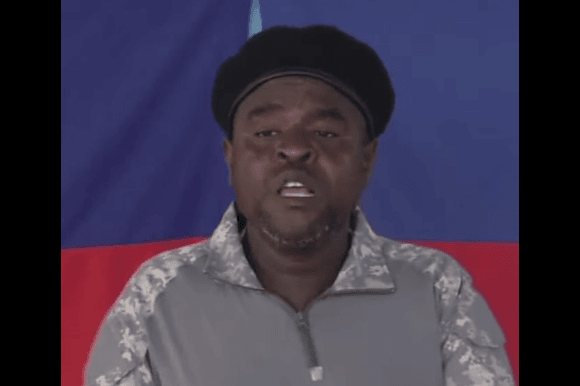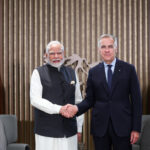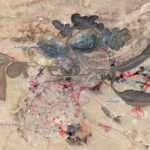US federal prosecutors have announced criminal charges against Jimmy Cherizier, the notorious Haitian gang leader widely known as “Barbecue”, who commands a powerful alliance of gangs controlling significant parts of Port-au-Prince, Haiti’s capital.
According to the indictment, Cherizier and 48-year-old US citizen Bazile Richardson are accused of soliciting funds from the Haitian diaspora in the United States to finance gang operations and purchase firearms — in direct violation of existing US sanctions.
Cherizier, a former police officer who remains at large in Haiti, leads the violent coalition Viv Ansanm (“Live Together”), which the US formally designated as a foreign terrorist organization in May. He is now the subject of a $5 million (£3.7 million) reward offered by US authorities for information leading to his arrest.
The gang network has been linked to a series of violent crimes including killings, abductions, and attacks on critical infrastructure. “There’s a reason there’s a $5 million reward for his capture,” said US Attorney Jeanine Pirro during a press conference on Tuesday. “He’s a gang leader responsible for heinous human rights abuses — including violence against American citizens in Haiti.”
Prosecutors believe Cherizier played a central role in the 2018 La Saline massacre, where 71 people were killed, more than 400 homes were destroyed, and at least seven women were raped in one of the most brutal incidents of gang violence in recent Haitian history.
Richardson, a naturalized US citizen originally from Haiti, was arrested in Texas last month and had been residing in North Carolina prior to his arrest. Authorities say Richardson, who also went by aliases including Fredo, Fred Lion, Leo Danger, and Lepe Blode, raised money to support Cherizier’s gang by funneling funds toward gang salaries and the acquisition of weapons.
Assistant US Attorney General John Eisenberg stated that both men actively contributed to “bankrolling Cherizier’s violent criminal enterprise,” and emphasized that their actions have been a driving force behind the ongoing security crisis in Haiti.
“The United States will continue to pursue those who enable violence and instability in Haiti,” Eisenberg said.
In a bold political maneuver, Viv Ansanm — the gang alliance led by Cherizier — announced earlier this year that it was rebranding itself as a political party, despite being under international sanctions. In addition to US sanctions, Cherizier is also targeted by the United Nations, Canada, and the United Kingdom for his role in fueling the ongoing violence and instability in the country.
If apprehended, Cherizier could face extradition to the United States to stand trial. However, he continues to wield significant influence on the ground in Haiti, remaining shielded by his heavily armed supporters.
Haiti’s descent into chaos has deepened since the 2021 assassination of President Jovenel Moïse by still-unidentified gunmen in Port-au-Prince. The country, already the poorest in the Western Hemisphere, has since spiraled into political paralysis, economic collapse, and near-total gang domination of urban areas.
The stranglehold by gangs over the capital has resulted in a near-total breakdown of public order. Health services have disintegrated, law enforcement is nearly non-functional, and the country is now gripped by a worsening food security emergency.
Efforts by a UN-backed, Kenyan-led international security mission to restore order in Port-au-Prince have so far failed to make meaningful progress in reclaiming control of the city from gang factions.
The humanitarian crisis is now reaching alarming levels. According to United Nations estimates, more than 5.7 million Haitians — over half the nation’s population — are facing acute food insecurity. Additionally, more than one million people have been displaced internally due to violence, compounding the country’s growing instability.






